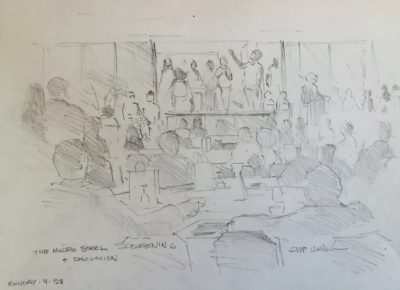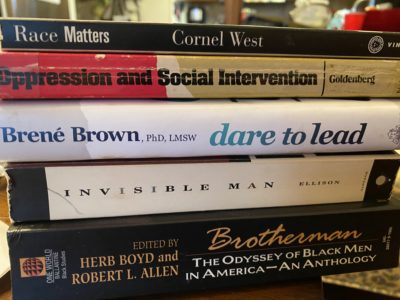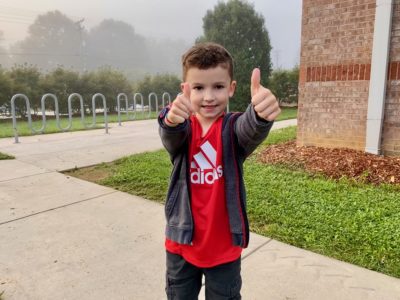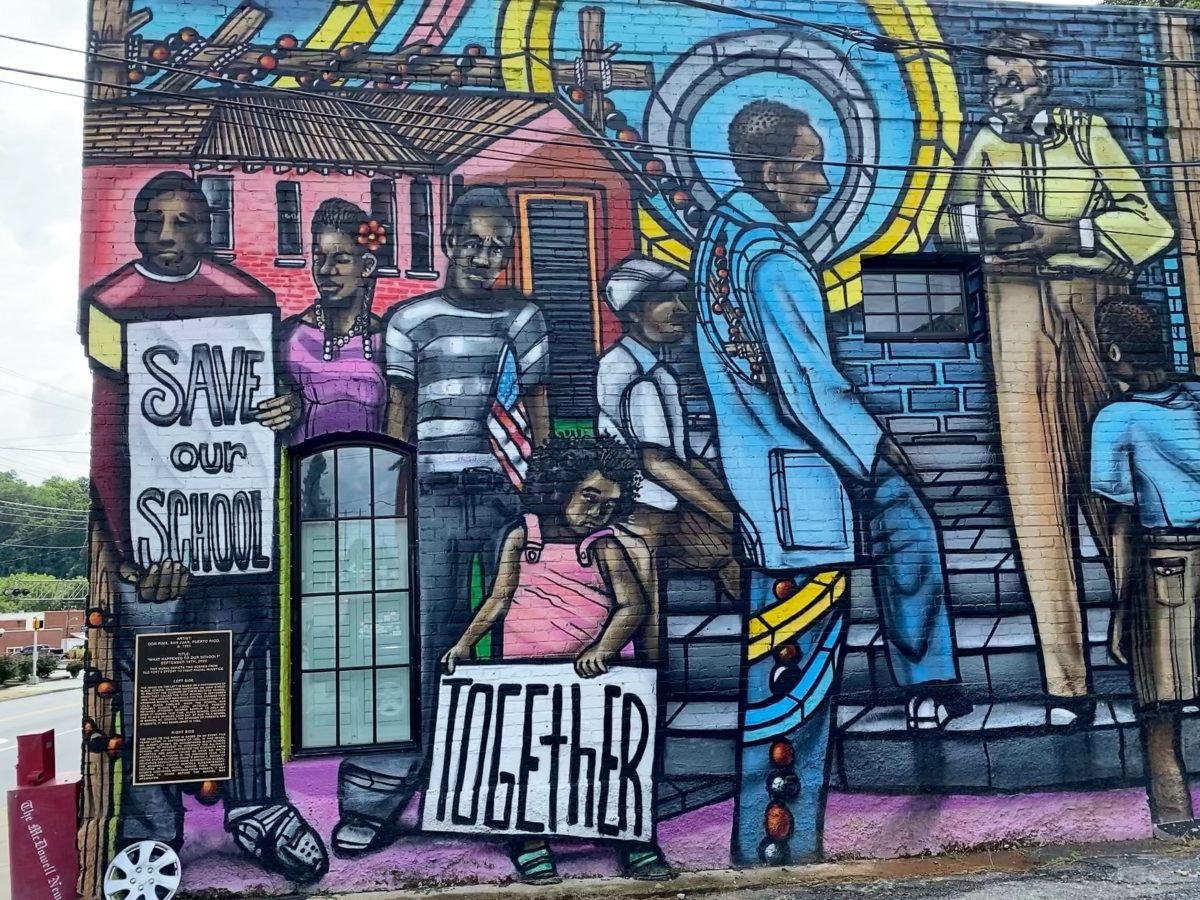
The work of diversity, equity, and inclusion (DEI) happens in the small decisions made in the day-to-day of any organization. We need, want, and wish for our work on equity to speak for itself. For that to happen, we have to share our process with our team and our audience, with our funders and other news outlets so you can hold us to account and give us feedback so we can then iterate our approach.
Diversity to us is the presence of difference within our organization. Inclusion requires people of different identities to all be welcomed and valued, equally leveraging different skills and lenses in the collective work. Equity is our process and approach to bring intention to the choice points that arise day in and day out in implementing a DEI strategy in support of our mission to expand educational opportunity.
Our approach is aspirational. We do not do all of these things perfectly all of the time, and we make a lot of mistakes. It requires trying to do the work with fidelity daily.
This is a comprehensive playbook for how to implement a DEI strategy in a news organization, including an ongoing equity audit.
Do you have an equity statement?
In the early days of EdNC, Tracey Greene-Washington helped us craft our working statement on equity:
Being in healthy, positive, and equitable relationships with residents, leaders, organizations, and communities is critical for impactful partnerships and to support systems level change. It requires hard conversations about difficult issues, creation of intentional space, interrupting false narratives, choosing to not be complicit in issues or practices that perpetuate inequities, good intent without a hidden agenda, and the resistance to render individuals invisible or villains when issues get uncomfortable and hard.
How do you approach the work?
At EdNC, we approach our DEI work intentionally through four dimensions: intrapersonal, organizational, community presence, and systems change.
Here is what we have published about our approach to DEI to date
Intrapersonal development
This is the “I” work. An organization can have a DEI strategy informed by best practices, and if you don’t have buy in from the people doing the work to implement it, it isn’t going to make a difference.
This dimension is about our people and the support they need personally and professionally to do the work.
Knowing that our people need to be physically and mentally healthy to sustain this work, we have committed to supporting their wellness. This looks like enough time off at holidays to visit with family and also have respite. This summer we took a collective sabbatical. During the pandemic, we provided wellness stipends to help our team cope with the isolation and also the stress of continuing to show up in person to report, especially before vaccines were available.
Our team has access to books and book clubs to guide their equity journeys.
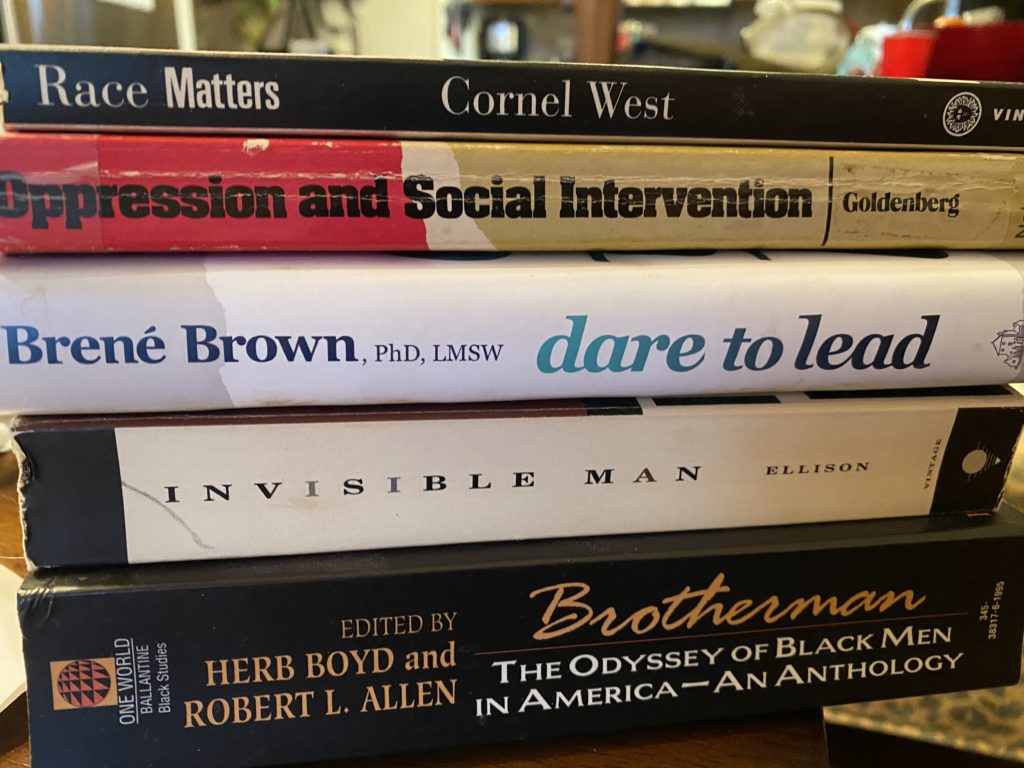
We offer our team access to an equity coach for one-on-one, private coaching. At first, I (the white leader) thought I was going to pick one coach for the team, but I quickly realized our team needed to be able to pick their own coach, so we came up with a list of approved consultants.
We encourage questioning personal and professional proximity to diversity. Have you scrolled through your Instagram feed or other social media to check for proximity recently?
As needed, we have been able to pay for legal fees for employees who needed representation from an immigration attorney.
We work with our team to balance their role as reporters and their own personal right to free speech on issues they care deeply about.
Belonging continues to surface as the priority for our team. All of the DEI work is for naught if the team doesn’t end up feeling a true, authentic sense of belonging. Our swag includes individually-designed EdNC hoodies.
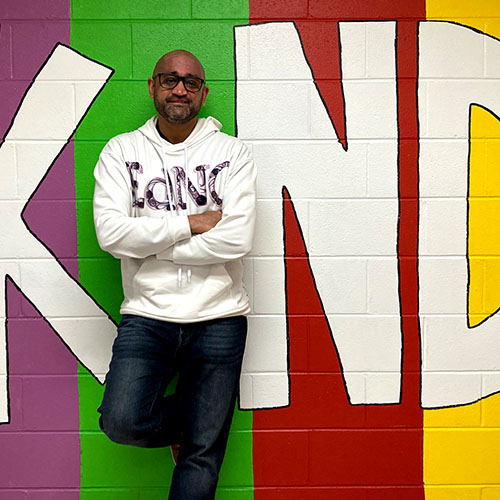
Can people afford to work with us? We don’t offer benefits, but we invest in our team so they can buy the benefits they need and want. In 2022-23, we will pay everyone above the median salary in the United States for a journalist, including those just graduating from college.
Organizational development
This is the “we work.” This dimension is about our organization and our purpose. It is about DEI being part of our culture.
It is about numbers, and not just diversity on our team, but diversity on the board, strategic council, authors of perspectives, and with our vendors.
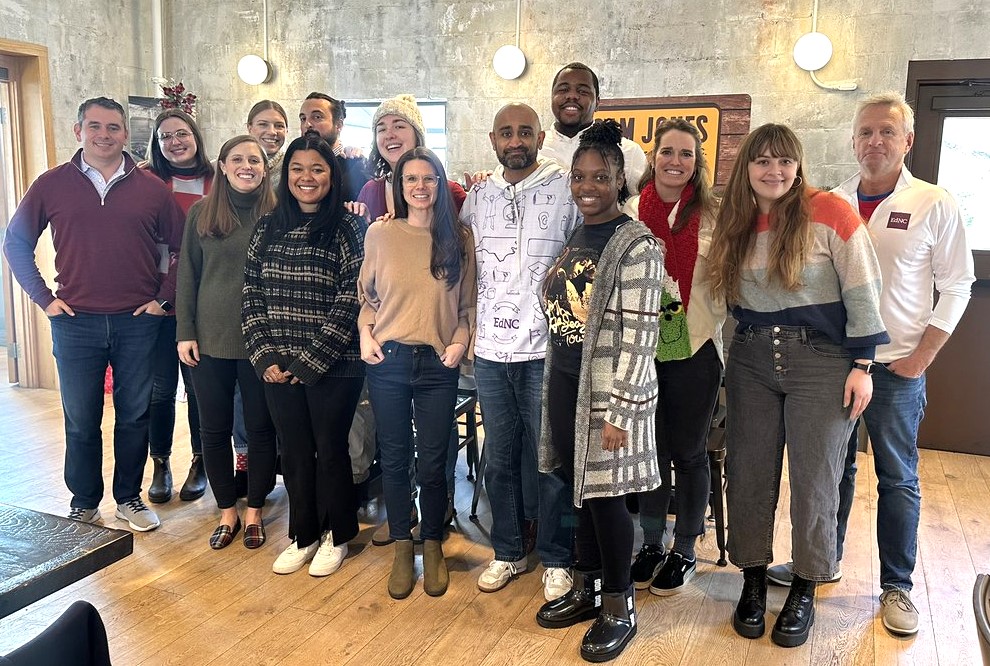
It is about building pipelines — to employment, serving on our board or strategic council, publishing perspectives, being in our audience, and otherwise working with us — that increase diversity.
Here is a snapshot of our diversity today:
On the board of EdNC, 4 of 9 are women, 4 of 9 identify as Black, 1 identifies as Latinx.
Our consideration of diversity and inclusion includes lines of difference beyond gender, race, and ethnicity, for instance, LGBTQ+ and those in recovery. That said, our team remains too white.
In May 2021, EdNC invested in four full days of racial equity professional development led by Dr. Kebbler Williams with the Hunt Institute. We wanted to think about DEI through the lens of a school and a district, and this is the training the institute provides educators. We know DEI training can’t be one and done. We are planning a tune up this spring.
This dimension also requires us to ask whether our bylaws and policies are aligned to our DEI commitment. In 2021, we changed our board structure to distribute leadership and power.
Tara Kenchen is paid to advise the CEO, the Board, and the team on our approach to DEI. Kenchen is certified through the Coach Diversity Institute. Her certification includes 90 hours of in-person training, six virtual learning labs, 12 peer coaching hours, and 10 mentor coaching hours.
We work with our funders to make sure they understand the importance of DEI in journalism broadly and our work. Our organizational commitment to DEI requires constant consideration of how we invest and align resources.
Community presence
This is “our walk.” This dimension is about our presence and how our work shows up in the lives of the people and the places we serve. We approach this work through the six fault lines of race, ethnicity, gender, generation, class, and geography.
None of our content is behind a paywall. Restricting access to information because of ability to pay is not in keeping with our commitment.
We were the first outlet in North Carolina to have an equity editor and an equity auditor. The equity audit process we are launching subsumes these roles.
Together, our editorial process considers every word, every headline, every SEO (search engine optimization), every social media card, and the influence on how readers perceive our stories.
We are thinking about which stories and issues get covered — and which don’t.
We are thinking about our sources and whether they are reflective of the people and communities we serve.
We ask our sources how they want to be identified.
Access to our platform and our audience via the publication of perspectives has been a team commitment since day one of EdNC.
We worry a lot about who is and isn’t in our audience, and we built Reach NC Voices to connect deeply in communities across North Carolina.
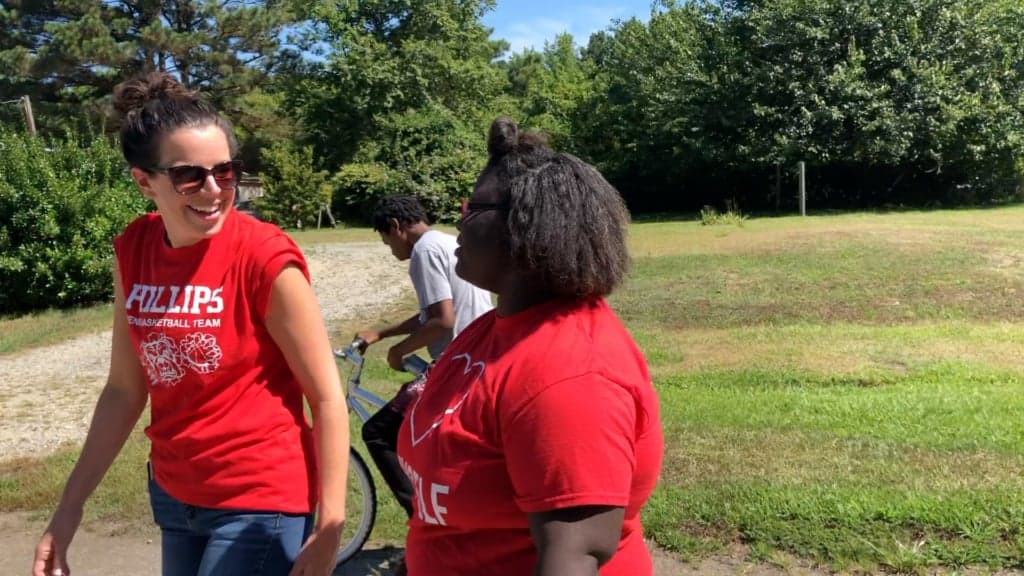
We review our use of AP Style and instances where style guides perpetuate structural racism.
We commit organizational resources to support diverse leaders and the creation of content we believe furthers the work of DEI in schools and community colleges.
Systems change
This is “our way” forward. This dimension requires us to wrestle with whether our people, our purpose, and our presence are aligned toward the point of all of this work — real structural changes in our schools and our communities, in the media industry, in our state, and across our nation.
We examine dominant culture practices, we evaluate journalistic practices that perpetuate racism, and especially in our partnerships, we try to see, name, and interrupt extractive approaches. In other words, we try to give more than we take.
Nation Hahn is part of the API Table Stakes cohort of coaches nationally. Through this work, he has had the opportunity to learn from the Maynard Institute about fault lines in journalism and bring his learnings to EdNC and other news organizations around the country.
We continue to wrestle with how to best support the creation of Latinx content. Carol Bono, formerly on our team, led an initiative called Comunidad. But it was clear in conversations with education advocates and philanthropists that this content needed to be Latinx led, Latinx edited, Latinx reported, and Latinx distributed. Now we partner with LatinxEd — and Carol is on their team — to build capacity for Latinx education content that we hope will be distributed statewide.
EdNC was an inaugural member of the N.C. Media Equity Project.
“The Water of Systems Change” by FSG finds six conditions that need to be addressed with intention at the organizational and systems level to prompt change:
For structural change| policies, practices and resource flows
For relational change| relationships and connections, plus power dynamics
For transformative change | mental models
Going forward you will see us applying this model internally as well as in our work to prompt change in the education system and media industry.
The need for an ongoing equity audit
Whenever a news outlet pushes publish, you are creating a choice point in your commitment to DEI.
Equity audits tend to be snapshots in time. They are retrospective. If they blame and shame, too often the work stalls out. And leadership transitions create a real risk point for bringing the journey to an end.
We wanted to build a different type of equity audit. One that is ongoing. One that has buy-in from the team, the board, the funders, and the audience. One that is embedded in the day to day of our work.
It has taken us a year to get to a starting point.
Tara Kenchen initially conducted a retrospective audit of our perspectives and the race and ethnicity of our authors. About 17% were people of color or ethnicities other than white. We set a goal to increase that percentage to 20% — at least one author of color a week. Our stretch goal will be to double that to 40%.
Next we looked at the EdNC content. We publish about 40-50 articles a month. Anna Pogarcic, our director of content and communications, created a spreadsheet tracking all of our articles. Each article as it is published is evaluated to see if it targets or includes under-reported issues, people, or places, through the following lenses: socioeconomic status, race, ethnicity, gender, sexual orientation, gender identity, and immigration status. At the end of each month, Pogarcic, along with Molly Urquhart, Derick Lee, Tara Kenchen and myself audit the content together, reviewing the spreadsheet. This reflective practice allows us to iterate our content month to month.
As our content is pushed out into the world, we have a process in place to evaluate each week if the language and photos used on social media relative to each story align with our commitment to DEI. If not, changes are made in real time.
That’s the equity audit process we are implementing for our content publishing now and in the future.
But what about the issues, people, and places EdNC has underserved?
To address past inequities in our work:
- A reporter will be covering equity full time, including literacy and learning differences.
- A member of our team will be supporting and working with leaders of color and organizations with equity agendas to include them intentionally in our work.
- There will be content targets for the eight counties that are more than 50% Black and the two counties that are majority Indigenous.
- We will continue to cover the NC 10, our historically Black Colleges and Universities, and also Hispanic Serving Institutions.
This is how we are going to start auditing our own publication choice points, and we hope the media industry more broadly will consider trying these practices on.
Best practices from article inception to publication
This year, we will be building out our DEI playbook to include best practices for our team from article inception to showing up in community to putting articles together to publication.
This work is hard. Expect to make mistakes.
We make mistakes, and we will continue to make mistakes. When we do, you will see us issue trust blocks on our stories as we learn how better to do this work.
This year, EdNC conducted our largest survey to date. I decided not to include a question where respondents could have identified their race or ethnicity. The tension, for me, was between potentially identifying respondents of color and the possible ramifications, and the need to disaggregate results by race and ethnicity to prompt systems change. I erred on the side of protecting the individuals taking the survey. In hindsight, I should have let that be their choice.
We will continue to hold space for reflective practice to review lessons learned and build toward best practices.
Thank you for supporting our team and our commitment to DEI in our work and in the world. We will keep you posted as our learning continues.
Email me with your thoughts and your best practices at mrash at ednc.org.


